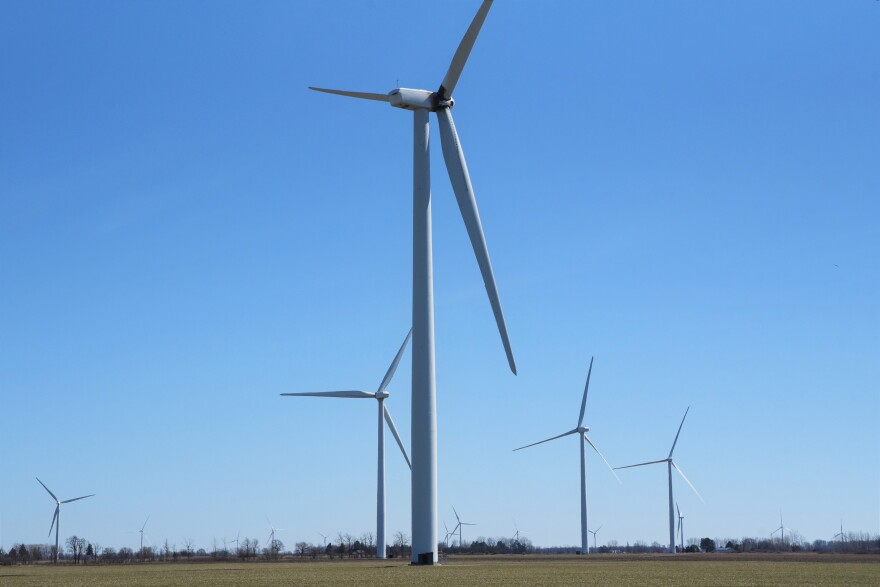A petition campaign led by local government leaders plans to start gathering signatures soon in an effort to repeal Michigan’s new clean energy law. The goal is to get a question to voters on the November ballot.
Democrats used their narrow majorities in the state House and Senate, and their control of the governor’s office, to enact the law over Republican objections late last year. It allows the Michigan Public Service Commission to preempt local zoning rules to permit large wind and solar energy farms. The MPSC is a three-person board appointed by the governor.
Local officials complain the new law robs them of the right to set meaningful zoning regulations that govern the quality of life in their communities.
“It really makes a mockery out of local control of land use,” said Lenawee County Commissioner Kevon Martis, one of the leaders of Citizens for Local Choice.
“There’s millions and millions and billions of dollars in play for these corporations and they have yet to offer anything to local communities worth the cost of the loss of amenities of home, the loss to the agricultural industry, the loss of quality of life to make it worth it.”
Martis said there are “millions of acres” of state-owned land and brownfields that could be used instead of trumping local zoning regulations.
But Michigan Public Service Commission Chair Dan Scripps disagrees. He told Michigan Public Radio that communities will have the chance to make their case before local zoning rules are preempted.
He said the state has a compelling interest in ensuring access to energy that addresses climate change and a growing demand for electricity.
“If ultimately this initiative prevents the state from having a say in the siting of resources needed to meet our state energy needs, I do think the result is increased costs and reduced reliability,” said Scripps.
The energy law sets a goal of shifting away from fossil fuels to generate half of Michigan’s power using renewable resources by 2030 and 100% by 2040.



